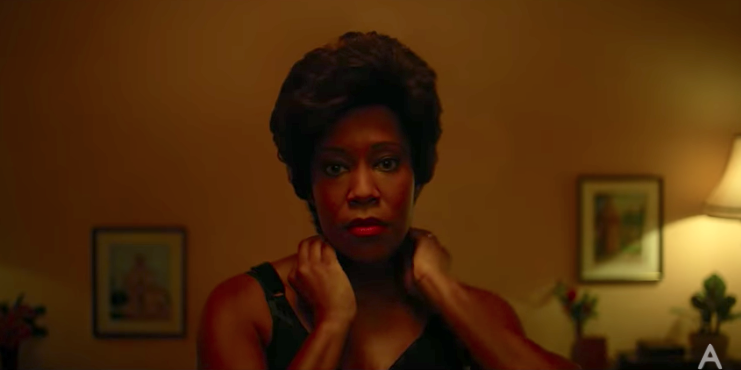Imagine the guts: It’s December 2013, and a tired and broke Barry Jenkins is spending his weeks alone writing a screenplay in Berlin, Germany. He’s a practical nobody at this point aside from directing a small indie feature, yet he elects to adapt a book from one of America's all-time great novelists, James fucking Baldwin.
Some way, somehow, he manages the rights, and it’s green pastures from here. Right?
“I was scared man,” Barry Jenkins admits with a tone that sounds like duh. “It’s James fucking Baldwin.”
Interestingly enough, it was that one 2008 feature, Medicine for Melancholy, a romance set among San Francisco's rapid gentrification, that convinced the estate of James Baldwin to give newcomer Jenkins the rights to adapt the beloved story, If Beale Street Could Talk, Baldwin’s 1975 prison parable about a black romance set in 1970s Harlem.
While most know Jenkins for having spent the last few years securing a legacy from his Oscar win in Moonlight, If Beale Street Could Talk stood in the background as the ever-challenging follow up that would demand similar creative principles borrowed from his portrait of black male sexuality.
In doing so, he brought over composer Nicholas Britell, who supplied the hearable texture to Moonlight’s sound, along with his own changeless cinematic talent for stripping scenes to their most bare sentiments. I already expressed my love for the film, but most recently, I also had the opportunity to speak with both Jenkins and Britell who touched once, and managed it in another. I spoke about the pressure and reward of adapting a James Baldwin story, and how Jenkins continues to be able to bring experiences to life that aren’t his own.
VICE: Talking to the both of you, you’ve got two wonderful movies down, some brand new Oscar buzz, and here you are again with If Beale Street Could Talk. What’s your relationship been like through all this craziness?
Barry Jenkins: Man, I feel like we never lost touch since then. Part of it was due to Nicholas who just likes to get right to it very early. So once we made Moonlight, and the Oscar situation happened, where we were both nominated, we sort of saw each other basically all the damn time [laughs], and just knowing that we were heading right into this film, that just moved quickly and naturally. It helped a ton that If Beale Street Could Talk was shot in New York, exactly where Nick lives. It’s’ so funny. I often think about how Nick and I really didn’t know each other at all before Moonlight.
Nicholas Britell: We really didn’t [laughs]
Jenkins: I hadn’t even heard of Nick’s music to be honest before hiring him for Moonlight. But we just met, and the vibe was so strong, and we became friends before we even became collaborators. At the very least, those two things happened at the same time.
Britell: That’s so totally true. I remember our first meeting so vividly too. I was scoring The Big Short that summer, and I had dinner with one of our producers, Jeremy Kleiner, and I remember him telling me about this apparently unbelievable script that he’s working on that he was about to produce called Moonlight. He’s actually crying as he’s telling me this because it was so beautiful. So then I read it, and I was blown away. It was absolutely the most beautiful script that I had ever read. It was like poetry. It really read like a poem and was absolutely sublime. Of course, I immediately asked if there was any way that I could possibly meet this Barry guy. So I remember him connecting us and we met up thinking we were just going to do the coffee thing, but we ended up having this three-hour deep conversation about life, music, and films. The connection was there from the start and the ideas just started to roll.

Case in point, in the book when the great Regina King’s character, Sharon Rivers, is in Puerto Rico on behalf of her son... in the book, she’s trying to put on and remove a black shawl, but with Regina, she was telling me that a woman of her generation and the generation who raised her would be doing this with a wig. And I was like, you know what, I never wore a shawl nor a wig, so let’s do it, it’s a wig. In listening, I arrived at that something where I get on set and ask an actress, hey you know what? I think I want you to do this same scene you altered, but now you’re looking directly at the camera. Now she’s a part of the choice with what she’s doing. Through listening, I can arrive at something that has more agency from the actors and actresses I work with, and from that, they feel more real to an audience in ways I could never produce from my own understanding.
This article originally appeared on VICE Canada.
Sign up for our newsletter to get the best of VICE delivered to your inbox daily.
Follow Noel Ransome on Twitter.
from VICE https://ift.tt/2Pkb8W0
via cheap web hosting
No comments:
Post a Comment